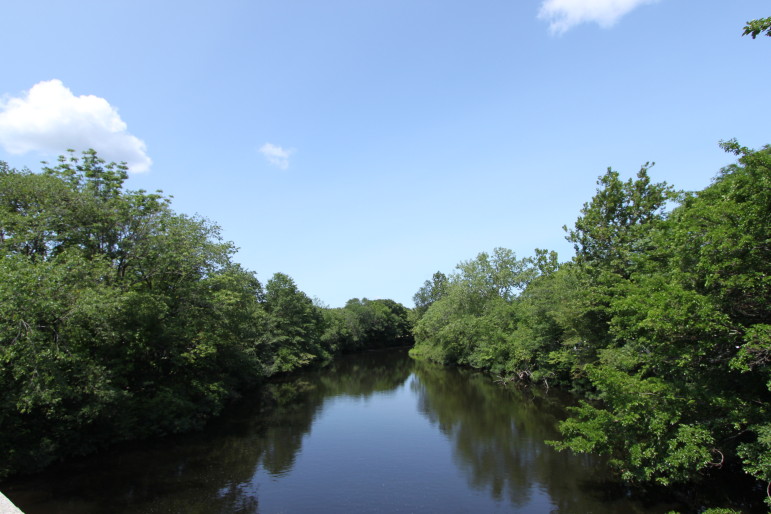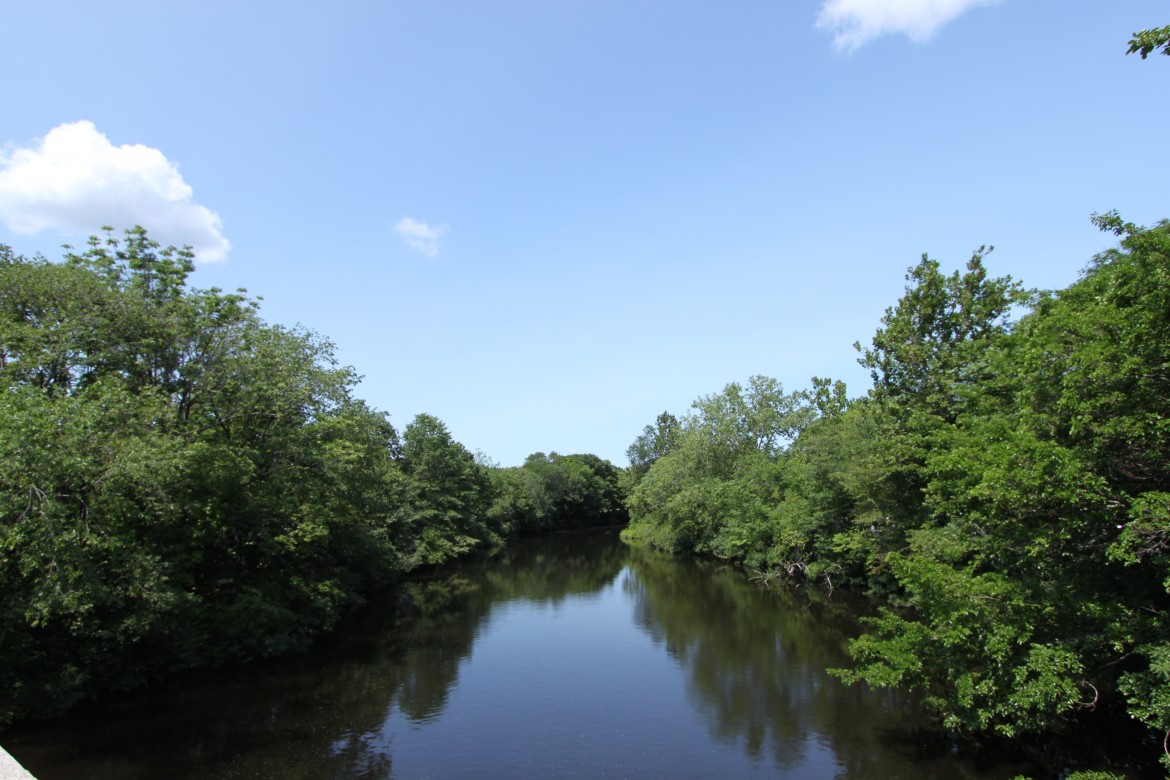
The following announcement comes from the Mass. Department of Environmental Protection:
Building on its commitment to protect and improve water quality across the Commonwealth, the Baker-Polito Administration announced nearly $300,000 in grants to five multi-community stormwater coalitions across the Commonwealth to help local cities and towns meet existing and upcoming stormwater management requirements.
“The Baker-Polito Administration is committed to protecting water quality across the Commonwealth and these funds will make a real difference in the 228 communities that will benefit from these projects,” said Energy and Environmental Affairs Secretary Kathleen Theoharides. “The stormwater collaboratives funded today will share resources, creative ideas and watershed protection strategies that have a proven record of success.”
“Stormwater is a significant source of water pollution across the state and is a complex issue that requires innovative ideas and cooperative solutions,” said Commissioner Martin Suuberg of the Massachusetts Department of Environmental Protection (MassDEP). “MassDEP is pleased to provide funding that will lessen the costs of permit compliance locally, while we continue to work closely with communities and stormwater coalitions to provide critical technical assistance.”
The projects, selected by MassDEP, were awarded to the Statewide Stormwater Coalition, Neponset River Watershed Association, Merrimack Valley Planning Commission, Charles River Watershed Association, and Massachusetts Maritime for Buzzards Bay Stormwater Collaborative.
The funding awarded by the Baker-Polito Administration will enable Massachusetts municipalities to expand their efforts to meet Municipal Separate Storm Sewer System (MS4) permit requirements and reduce stormwater pollution through coordinated partnerships that emphasize resource sharing. There are 260 Massachusetts municipalities subject to the current MS4 permit, issued jointly by the U.S. Environmental Protection Agency and MassDEP, which took effect on July 1, 2018.
Permit requirements that the MS4 communities must meet include the development and implementation of a public education program, adopting more stringent local development rules, locating and removing pollutants that are illegally entering municipal stormwater systems, and installing stormwater management systems.
The groups receiving funding are:
- Statewide Stormwater Coalition – $75,354
The Statewide Stormwater Coalition has developed education and outreach programming for more than 180 municipalities in Massachusetts that satisfies one out of six minimum control measures of the 2016 MS4 permit. For this project, the Statewide Stormwater Coalition will expand the education campaign through social media and YouTube advertising, translate video outreach materials to Spanish to reach a broader audience, and offer social media training for municipal staff on how to reach underrepresented audiences. - Neponset River Watershed Association – $66,776
This project will develop phosphorus and nitrogen source identification reports for its own member communities and those of the Connecticut River Stormwater Coalition to satisfy requirements under Phosphorus and Nitrogen Total Maximum Daily Load (TMDLs) plans. As part of this work, NepWRA will produce pollution-loading maps and propose approaches to reduce nutrient loading. The method developed by NepWRA will be available to all other municipalities that are affected by TMDLs in the state. - Merrimack Valley Planning Commission – $45,000
This project will create a geospatial tool that helps to identify permittee-owned properties that can be retrofitted for stormwater management in each of its 15 member communities. Best Management Practice cut sheets will be developed for two sites in each community. As part of the planning tool, the Merrimack Valley Stormwater Collaborative will place special emphasis on environmental justice communities. - Charles River Watershed Association (CRWA) – $59,771
This project proposes a new collaboration with the Central Massachusetts Regional Stormwater Coalition to develop Phosphorus Control Plans for communities affected by the Lakes and Ponds and Charles River Phosphorus TMDLs. CRWA will develop model Phosphorus Control Plan templates that will contain several recommendations on phosphorus reduction crediting and bylaw updates for each of the 54 communities included in the project. - Massachusetts Maritime Academy for Buzzards Bay Stormwater Collaborative – $47,000
Massachusetts Maritime Academy will train municipal staff on the utility trailer outfitted for illicit discharge detection sampling that was funded under the same program in fiscal year 2020. The eight Buzzards Bay municipalities participating in this program will also benefit from storm sewer system mapping support from Mass. Maritime Academy.
“MS4 grants play a crucial role in assisting cities and towns with their efforts to meet stormwater management standards, and I applaud MassDEP for their commitment to supporting our municipalities’ ongoing work to protect the Commonwealth’s water resources,” said State Senator Sal DiDomenico (D-Everett). “I am especially pleased that the grant awards going to both the Charles River Watershed Association and the Statewide Stormwater Coalition will reach every municipality in my district, including historically underserved Environmental Justice communities. Ensuring that our communities have the resources they need to develop effective solutions and meet challenges will go a long way toward preventing the harmful environmental and public health effects of stormwater pollution.”
“Very proud to see the South Shore be a leader as a member of the Statewide Stormwater Coalition committed to reducing stormwater pollution,” said State Senator Patrick O’Connor (R-Weymouth). “This round of grant funding will go a long way in helping to educate the public about how they can play a role in reducing the pollutants in our stormwater systems. I appreciate the commitment of the Baker-Polito Administration in helping communities improve their local environments.”
“I appreciate the Department of Environmental Protection’s work with the regional watershed associations that serve communities to ensure that funding is targeted to meet our priority stormwater needs,” said State Representative Carolyn Dykema (D-Holliston). “Each watershed has unique concerns, and it is critical that our state agencies remain responsive while playing a key oversight role in protecting our natural resources.”
The grants are funded through the Commonwealth’s Fiscal Year 2021 capital plan’s “MS4 Municipal Assistance Grant Program.” For more information on MS4 permits and their requirements, turn here.

Does this mean that the rate homeowners pay for water will go down?
The 6. % increase is very steep for homeowners, especially those with empty apartments.
The rate will go up 6% per year because the DPW does not have anyone qualified personnel to address the water issues in Watertown, too much nepotism and not enough knowledge, thats the Watertown way.
The rate hike was particularly high this year. The Town is trying to fund the water and sewer reserve to prevent such large increases in the future. The rates have fluctuated quite a bit recently 4% in FY20 (2019-20), 2.5% in FY19 and 0% in FY18.
https://www.watertownmanews.com/2020/08/13/water-sewer-bills-will-rise-over-8-council-grudgingly-approves-rates/
I agree with Steve. The level of experience is low with the decision makers in this town. Needs a complete overhaul and fresh ideas.